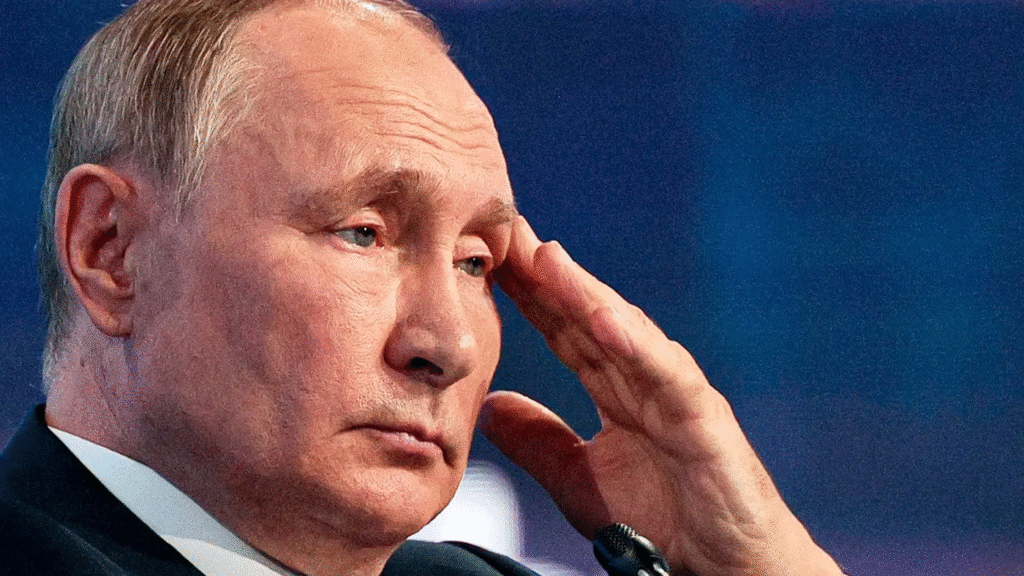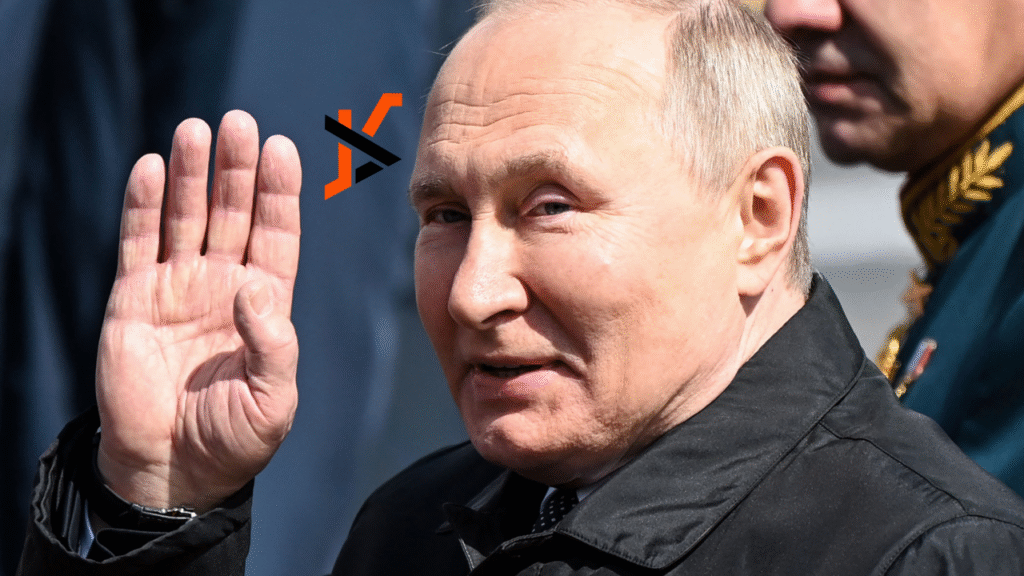In today’s world, Russian President Vladimir Putin has been at the center of much debate. Some view him as a protector of Russia’s national interests, while others perceive him as a villain who has caused significant harm both within his country and internationally. The question that often comes up is: Is Putin evil? This article will delve into Putin’s leadership, actions, policies, and legacy, examining whether or not he can be truly considered “evil.”
Why Do People Ask If Putin Is Evil?
The question “Is Putin evil?” arises largely from the global scrutiny of his leadership style and the controversial decisions he has made during his time in office. Putin has been in power for over two decades, and throughout this period, many of his actions, both domestically and internationally, have sparked heated debates. His crackdown on political opposition, invasion of neighboring countries, and the suppression of dissenting voices have led some to label him as a ruthless dictator. On the other hand, his supporters argue that he has brought stability and prosperity to Russia after the chaotic years that followed the collapse of the Soviet Union.
It’s easy to see why many people, especially in Western countries, might question Putin’s moral standing. However, whether Putin can be genuinely classified as “evil” is a much more complex issue, one that involves understanding the context of his actions, his leadership style, and his long-term goals for Russia.
Putin’s Leadership: What’s the Real Story?
Vladimir Putin first became president of Russia in 2000, following the resignation of Boris Yeltsin. He has since been re-elected multiple times, maintaining a strong grip on power. His leadership style has been described as both authoritarian and pragmatic. Under Putin, Russia has seen significant economic growth, largely due to rising oil prices, and has regained some of its status as a global power. However, this has come at a cost.
Putin has used a variety of methods to consolidate power, including controlling media outlets, silencing opposition, and restricting political freedoms. These actions have raised questions about the true nature of his leadership. While Putin may have stabilized Russia’s economy and restored national pride, his methods of achieving these goals have led many to label him as a leader who prioritizes control over democratic values.
How Putin’s Actions Affect Global Relations
Putin’s leadership has had a profound impact on global relations, both in terms of Russia’s interactions with other countries and the international community’s view of Russia. His aggressive foreign policy, especially toward former Soviet states and NATO, has caused tension with many Western countries.

Putin and the War in Ukraine: A View from the West
The war in Ukraine, which began in 2014 with Russia’s annexation of Crimea, is perhaps one of the most defining aspects of Putin’s foreign policy. To the West, the invasion of Ukraine is seen as a blatant violation of international law and a threat to the stability of Europe. The West has imposed economic sanctions on Russia in response to Putin’s actions, further isolating Russia from the global community.
For many Western nations, Putin’s actions in Ukraine have cemented his reputation as a leader willing to use force and aggression to achieve his goals. The humanitarian crisis that followed the invasion, with thousands of deaths and millions of displaced people, has added to the negative perception of Putin’s leadership.
How Global Leaders See Putin
World leaders have varied views on Putin. Some, particularly in authoritarian countries, view him as a strong, decisive leader who defends his nation’s interests and resists Western influence. Leaders in China, for example, have often expressed admiration for Putin’s stance on sovereignty and his ability to challenge the United States and Europe.
On the other hand, democratic nations, particularly in the West, view Putin with suspicion and concern. His aggressive actions in Ukraine, his interference in Western elections, and his suppression of political opposition have caused many leaders to criticize his leadership. The United States, in particular, has led international efforts to impose sanctions on Russia in response to these actions.
The Impact of Putin’s Policies on Russia
While Putin’s policies have largely benefitted the Russian economy in terms of growth and stability, they have also come at a significant cost to civil liberties and political freedoms within the country. The Russian government under Putin has been accused of stifling free speech, jailing political opponents, and undermining democratic institutions.
The Russian people, for the most part, have been supportive of Putin, especially during the early years of his presidency when the country experienced economic growth and a sense of national pride. However, the long-term effects of his policies, particularly the erosion of political freedoms, have raised concerns about the future of democracy in Russia.
Putin and Human Rights: What’s the Concern?
One of the key criticisms of Putin’s leadership is his record on human rights. Over the years, various international human rights organizations have reported widespread abuses in Russia. The Russian government has been accused of repressing free speech, suppressing political opposition, and curtailing the rights of minority groups, including LGBTQ individuals.
Putin has also been criticized for his treatment of journalists and activists who dare to challenge his government. High-profile cases, such as the poisoning of opposition leader Alexei Navalny and the mysterious deaths of journalists critical of the regime, have raised alarm over the state of human rights in Russia.
These actions have led many to question whether Putin’s leadership is truly evil, as it undermines the very principles of freedom and human dignity that are essential to a just society.
Is Putin’s Vision for Russia Evil?
Putin’s vision for Russia has been described as a return to the country’s former glory, with an emphasis on national sovereignty, military strength, and economic stability. He views Russia as a global power that should not be subject to the influence of Western nations.
While his vision for Russia may not be inherently evil, the methods he has employed to achieve his goals have raised serious ethical questions. His use of military force, manipulation of political systems, and suppression of individual freedoms all contribute to the negative perception of his leadership. Whether or not Putin’s vision for Russia is “evil” depends on one’s perspective and values.
Putin: A Hero to Some, a Villain to Others
Putin’s legacy is highly polarized. While many people in Russia view him as a hero who restored the country’s pride and strength, others see him as a villain who has sacrificed personal freedoms and human rights for the sake of power.

Putin’s Popularity in Russia
In Russia, Putin enjoys widespread popularity, particularly among older generations who remember the instability of the 1990s following the collapse of the Soviet Union. Many Russians credit Putin with bringing stability, improving the economy, and restoring national pride. However, his popularity has been built in part on a controlled media environment that praises his leadership and downplays his shortcomings.
The Global Reaction to Putin’s Decisions
Globally, however, Putin is viewed with much more skepticism. Western nations, in particular, are critical of his policies, especially regarding Ukraine and the treatment of political dissidents. The global reaction to Putin’s actions has been largely negative, with many countries imposing sanctions and condemning his human rights record.
Putin’s Personal Legacy: Villain or Protector?
In the end, Putin’s legacy will likely be defined by how his actions are remembered by future generations. Some may view him as a protector of Russia’s interests, while others will remember him as a leader who prioritized control over democratic principles. Whether he is considered a hero or a villain largely depends on one’s perspective on power, governance, and human rights.
Is Putin Truly Evil?
So, is Putin truly evil? It is a difficult question to answer definitively. Putin’s actions have caused significant harm to many individuals and countries, especially in terms of human rights and international relations. His aggressive foreign policy, suppression of political freedoms, and disregard for human rights have led many to view him as a villain.
However, it’s also important to consider the context of his leadership. Putin has helped stabilize Russia, rebuild its economy, and restore a sense of national pride. For many Russians, this makes him a hero. The answer to the question “Is Putin evil?” depends on where you stand politically and morally. For some, his actions are justified by the need to defend Russia’s interests. For others, the cost of these actions—namely, the loss of freedoms and human dignity—makes him a villain.
The Bottom Line
In the end, the question of whether Vladimir Putin is evil is subjective and complex. He is a leader who has achieved much for Russia, but at a significant cost to democratic principles and human rights. His actions, both domestically and internationally, have sparked widespread debate about the morality of his leadership. Ultimately, whether Putin is considered evil depends on one’s perspective on power, governance, and ethics.

